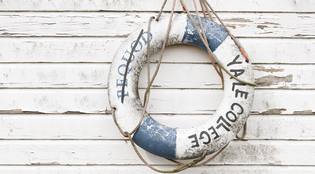 loading
loading
Arts & CultureYou can quote themIvy League quotations. Yale law librarian Fred R. Shapiro is editor of the <i>Yale Book of Quotations</i>.
 Photo illustration: John Paul ChirdonView full image
The Ivy League is an odd institution, a grouping of colleges that was based entirely on football rivalries but has assumed enormous academic and social importance. Quotations about the Ivies range from the hagiographic to the cynical and inevitably suggest something about the place of each of the eight schools in popular culture. The Ivy colleges have been prominent long enough that some of them have attracted iconic quotes. Harvard, for example, has “You always can tell a Harvard man when you see him, but you can’t tell him much.” The earliest use I have found was by Yale president Arthur Twining Hadley, Yale College Class of 1876, quoted in the Chicago Daily Tribune, May 27, 1906. Another familiar Harvardism celebrates “our oldest, richest, and freest university.” David Starr Jordan, president of Stanford, quoted this one in Science, January 22, 1909. A less positive commentary on the Crimson came from acerbic Yalie William F. Buckley Jr. ’50. In his 1963 book Rumbles Left and Right, Buckley opined, “I should sooner live in a society governed by the first two thousand names in the Boston telephone directory than in a society governed by the two thousand faculty members of Harvard University.” Another perspective comes from Yale football coach T. A. D. Jones, Class of 1908, who told his players before a Harvard football game: “Gentlemen, you are now going out to play football against Harvard. Never again in your whole life will you do anything so important.” (He was quoted in Tim Cohane, The Yale Football Story, 1951.) Earlier, Herman Melville had written in Moby Dick, “A whale-ship was my Yale College and my Harvard.” Yale, of course, has its own iconic mottos not related to Harvard. “Bright College Years,” which became the theme song of Yale College, features the famous line “For God, for Country, and for Yale!” (Henry S. Durand ’81 wrote the lyrics his senior year to an 1854 tune by Carl Wilhelm.) Less iconic—but much funnier—is Dorothy Parker’s quip, reported by Alexander Woollcott in his While Rome Burns (1934): “And there was that wholesale libel on a Yale prom. If all the girls attending it were laid end to end, Mrs. Parker said, she wouldn’t be at all surprised.” Truly famous Ivy sayings are harder to come by when one gets beyond Cambridge and New Haven, but Dartmouth and Cornell each have one. When Daniel Webster argued the landmark case Trustees of Dartmouth College v. Woodward in the United States Supreme Court in 1818, he declaimed, “It is, Sir, as I have said, a small college. And yet there are those who love it!” Andrew Dickson White, the cofounder of Cornell, is said to have prohibited the football team from playing Michigan in 1873: “I will not permit 30 men to travel 400 miles merely to agitate a bag of wind.” (He was quoted on November 7, 1944, in the New York Times.) There are many quotations about these schools that are not well known, but deserve to be. Here are just two. Princeton’s most famous denizen, Albert Einstein, paid a fine compliment to his adopted home: “Into this small university town the chaotic voices of human strife barely penetrate. I am almost ashamed to be living in such a place while all the rest struggle and suffer” (letter to Queen Elizabeth of Belgium, March 20, 1936). Brown was movingly praised by its president, Henry M. Wriston, in a 1955 address—capturing a quality to which, perhaps, every college should aspire: “This campus is a place of beauty and charm. I do not believe that any boy can walk these walks for four years and not have something happen to his heart as well as to his head.”
The comment period has expired.
|
|